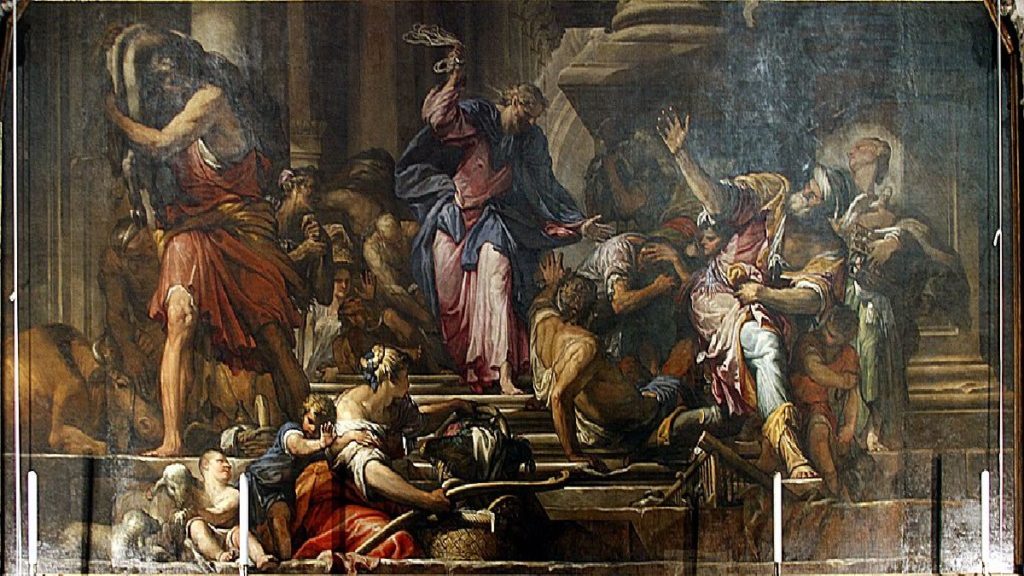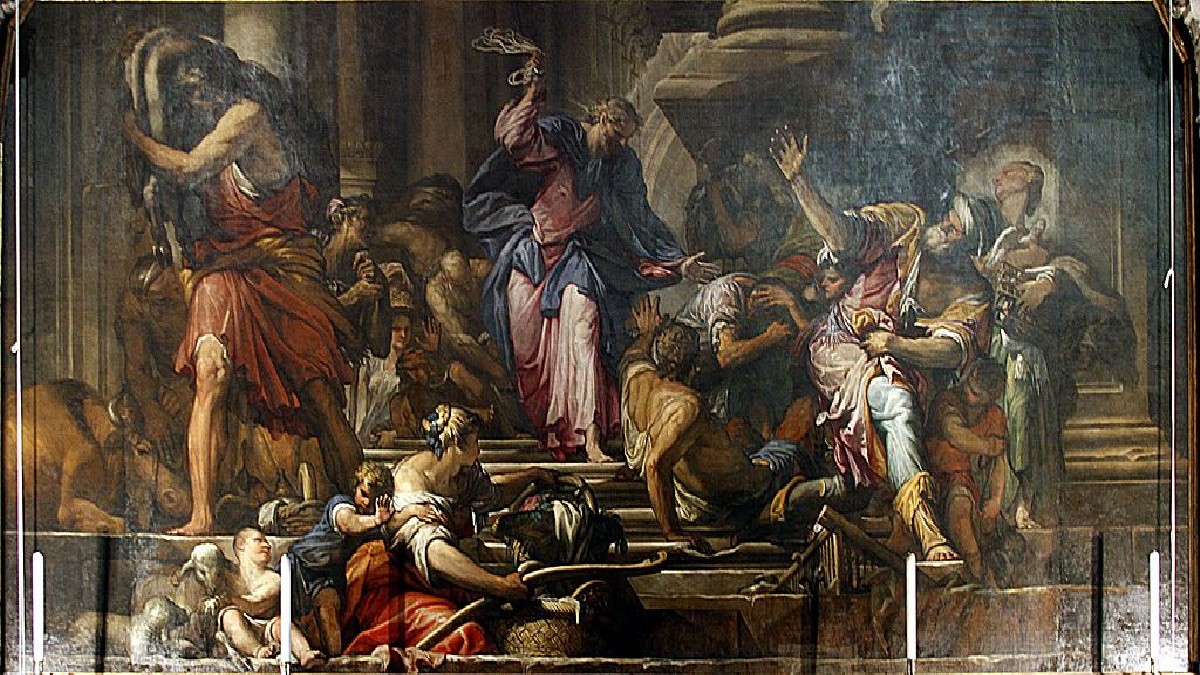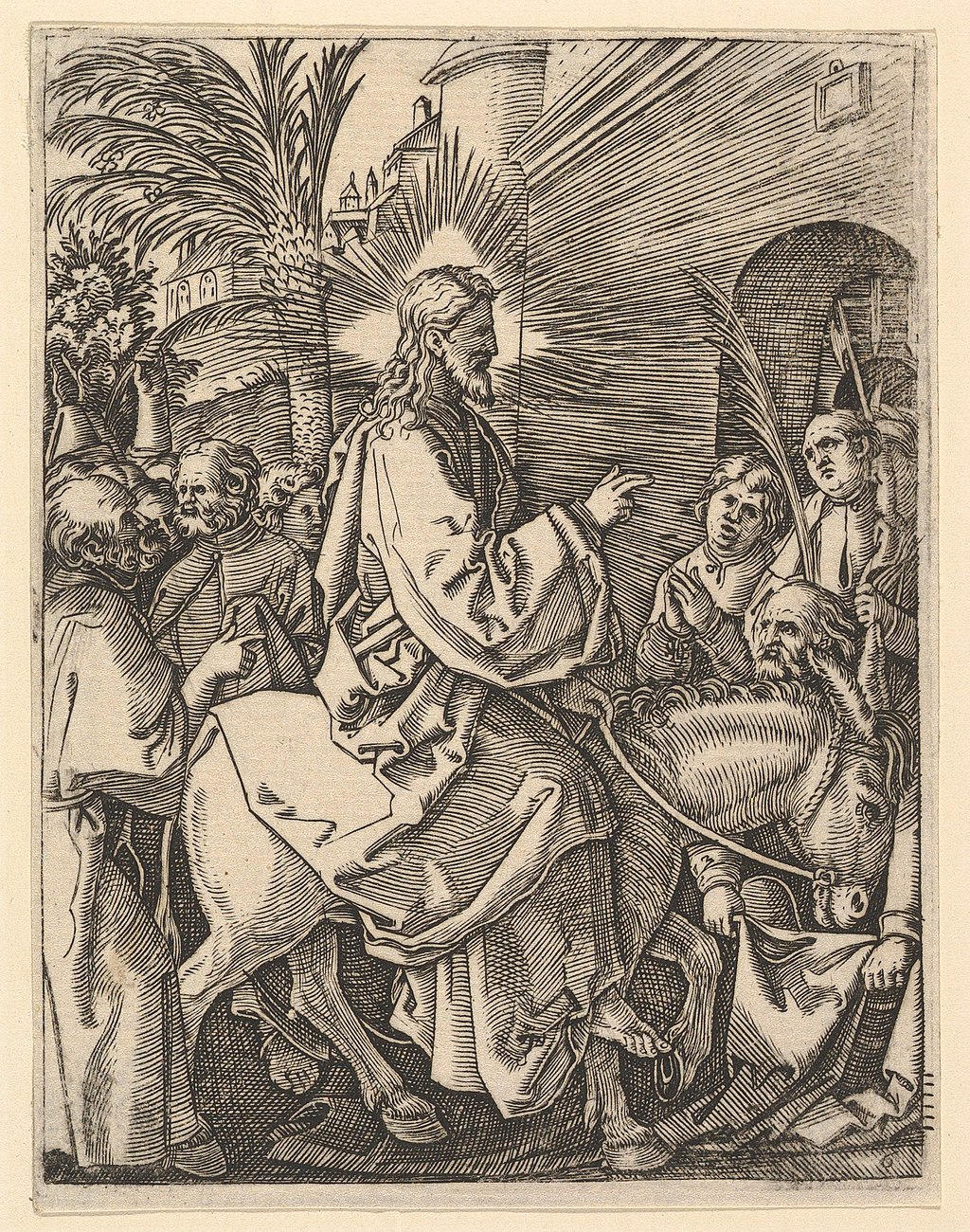
@johnvinod | March 30, 2021
Today’s reading is Mark 11: 15-19. When Jesus rode into Jerusalem on a donkey, it was the Passover Festival. The city was bustling with people from all over Israel, along with visitors from other nations.
In preparation for the Passover, every household was busy thoroughly and religiously cleaning their dwellings. The remembrance and celebration of the Passover were a serious business for the Jews. It was an opportunity not only to thank God for the liberation from Egyptian slavery, but also for passing on their religion to the next generation (Exodus 13). Therefore, they ceremonially searched every nook and even the tiniest bit of yeast, or food containing yeast, was wiped out of the house.
However, the only house that was overlooked year after year was the House of God. They had only one temple where sacrifices were accepted. Over the years, the temple and its sacrificial system became a symbol of a religion gone bad. It became a seat of corruption, exploitation, and commercialization of all sorts.
When Jesus entered the temple, he was greeted by the clinking of metal coins, flapping of a bird’s wings, bleating of lambs, the stench of the animal dung and bird droppings, along with the irritating noise of negotiations. However, what made him really furious, to the extent that he made a whip and drove out the sellers and exchangers from the temple? It was the fact that it was all being carried out in the court of the Gentiles.
By design, the temple welcomed and provided a spacious court for the people of all nations to come and pray there. This court was now filled with stalls, tents, animals, and sellers engaged in a profitable commerce. This outraged Jesus as he recalled the prayer of king Solomon, offered at the dedication of this Temple:
“Likewise when foreigners, who are not of your people Israel, come from a distant land because of your great name, and your mighty hand, and your outstretched arm, when they come and pray toward this house, 33 may you hear from heaven your dwelling place, and do whatever the foreigners ask of you, in order that all the peoples of the earth may know your name and fear you, as do your people Israel, and that they may know that your name has been invoked on this house that I have built” (2 Chronicles 6:32-33 NRSV).
He also remembered prophet Isaiah’s powerful words:
“…for my house shall be called a house of prayer for all peoples. Thus says the Lord God, who gathers the outcasts of Israel, I will gather others to them besides those already gathered” (Isaiah 56: 7b-8 NRSV).
With all that Jesus witnessed in the Gentile’s court, there was hardly any room left for the foreigners to assemble. The commercialization was hindering the nations from seeking God and praying to him. Jesus knew that those who pushed prayer out of the temple, turning it instead into a religious flea market, must be driven out! Jesus finally cleansed the house of God, which the people of God had neglected for long.
May the cleansing of the temple in Jerusalem lead us to look into our own churches. The institutionalization of a spiritual movement that Jesus started has been turned into a full-fledged profitable, professional, commercial enterprise. We are proud of running our churches like companies where prayers and missions…reaching out to the foreigners, the refugees, the vulnerable people, and those seeking God has been pushed out. We have become so inward looking and businesslike that the original mission of the church has been all but forgotten. Would we allow the Lord Jesus Christ to thoroughly search and clean us, and our businesses,…err…churches today?

Leave a Comment







